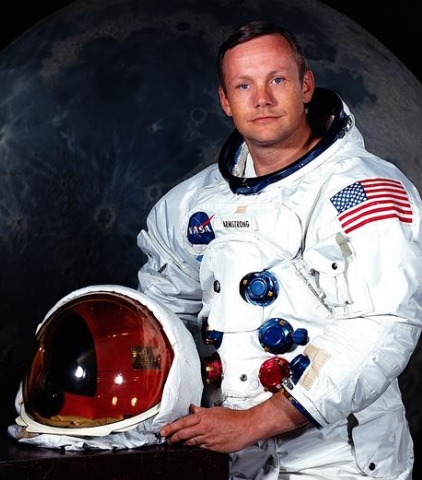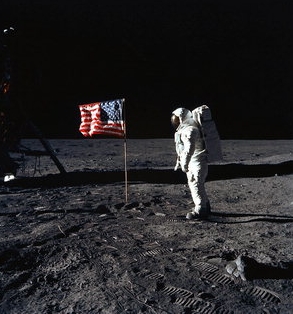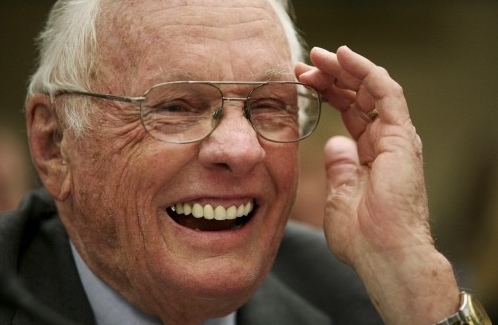In a series of four interviews, Neil Armstrong talks to Alex Malley, CEO of CPA Australia, speaks to Armstrong to mark the 125th year of the organisation.
Armstrong, who Malley describes as the most humble person he has ever met, uncharacteristically opens up about conspiracy theories, his 78 missions to Korea during the war, the notion of leadership and chasing and facing risk.
WATCH ALL THE NEIL ARMSTRONG INTERVIEWS on THE CPA AUSTRALIA SITE
On the notion of the moon landing being a conspiracy, Armstrong laughs, and told Malley that there's no way the 800,000 Nasa staff working on the project could have kept a secret, saying: "People love conspiracy theories, they're very attractive. But they were never a concern to me, because I know someone is going to fly back up there and pick up the camera I left there."
In a world first, Armstrong narrates his moon landing in Apollo 11, describing in detail the last three minutes of the ascent, while comparing images from forty years ago to Google moon images today. Conspiracy theorists will be disappointed to see how well the original footage and Google's new moon imagery match up.
Armstrong describes the current state of Nasa is "sad", saying: "Nasa has been one of the most successful public investments in motivating students to do well and achieve all they can achieve. It is sad that we are turning the programme in a direction where it will redue the amount of motivation and stimulation that it will provide to young people."
The short-term nature of decision making is doing a disservice to the agency, he says, adding: "I'm substantially concerned about the policy directions of the space agency. We have a situation in the states were the Whitehouse and the Congress are at odds over what the future direction should be. They're sort of playing a game and Nasa is the shuttlecock that they're hitting back and forth."
Malley spoke to The Huffington Post and told us that that convincing Armstrong to do the interview took three hours over a quiet lunch in Ohio, a little emotional manipulation. Malley says he knew that Armstrong's father was an auditor, and convinced him that his role as a world-motivating leader came with the responsibility of sharing his story. Armstrong was made an honorary CPA following the event, bringing him one step closer to his father.
Malley says that the biggest message from the interview is that the world's gone backwards in terms of how we fear risk, instead of fearing the froniter.
President John F Kennedy famously said: "We choose to go the moon and these other things not because they are easy but because they are hard, because that goal will serve to organise the best of our energies and skills, because that challenge is one that we're willing to accept, one we are unwilling to postpone and one we intend to win."
Malley told us: "Leadership is having courage to chase a vision and be willing to fail in the quest to achieve it, but now we have all sorts of risk managers telling us a hundred reasons we can't do something."
The quirkiest anecdote from the hours he spent with Armstrong is not a notion of greatness, or his historical significance, Malley says. He told The Huffington Post that Armstrong's mother was once on a 1960s quiz show, where entrants were asked to share a secret. "His mother told the host that her big secret was that her son was in the astronaut programme, and the host joked wouldn't it be amazing if he was the first man on the moon? The man's role seems to have been destiny."
SEE MORE MOON NEWS
China Proves Conspiracy Theorists Wrong With High-Resolution Moon Photos


